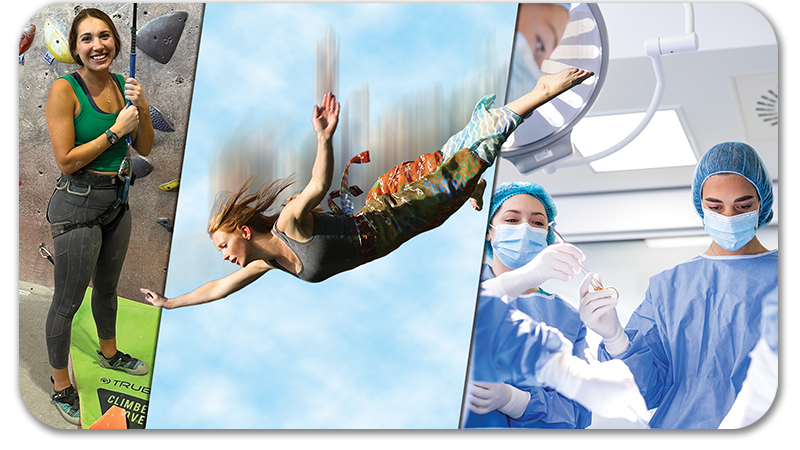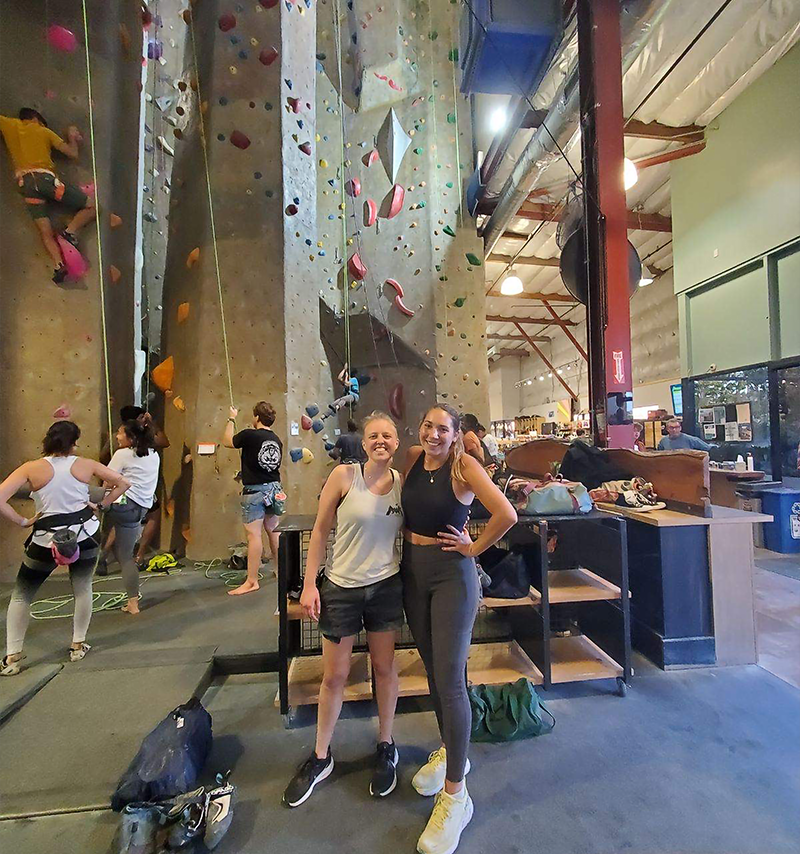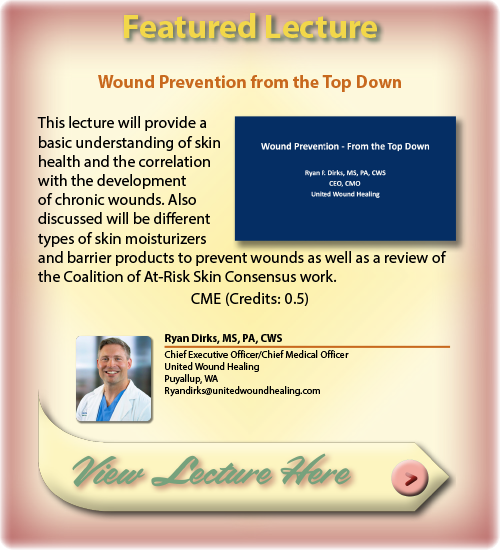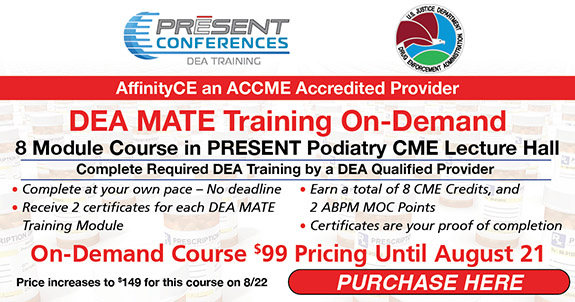
Sole Purpose 20
Rock Climbing:
A Metaphor for Surgical Training
Rock Climbing:
A Metaphor for Surgical Training

Today, I'm deviating from my usual running-centric sports talk to discuss a sport I absolutely abhor: rock climbing. As a long-distance runner, upper body strength isn't exactly my forte—my arms are more like wet noodles. Despite this, my friends and boyfriend all love rock climbing and continually invite me to the gym for bouldering and top roping.
Over the past few years, I've been coerced into rock climbing at least four to five times annually. Each time, I break into a cold sweat the second I get high up, convinced I'll fall and break SOMETHING, rendering me unable to be in the OR. Despite being taught how to fall safely and having never injured myself rock climbing, I still end up terrified. To add insult to injury, I get outperformed by literal children on the easiest routes. I cannot stand being bad at something. To make things even worse, I dislike rock climbing enough that I have never taken the time to improve on my own, so I'm just as terrible every time I return months later.
I HATE IT! Well… I should say I usually hate it. Recently, one of my childhood best friends challenged me to try changing my mindset. Maybe, just maybe, there's hope for my noodle arms yet.
Below I want to outline the mindset changes she recommended to me, what I learned from them, and how they apply to medicine.
It’s Okay to Fall and Fail
This is undoubtedly the scariest and worst part of rock climbing for me. While I am on the wall, I convince myself I'm going to fall. I spiral into a panic about all the bad things that will happen when I inevitably fail this baby rock climbing route. Sometimes I complete the climb getting to the top, but cannot get myself to come down, scared that I will fall coming down from the climb I just achieved. It is ridiculous. To combat this, my friend challenged me to purposefully overreach for holds I might not be able to grasp to practice falling. It’s much less scary to fall if you know how to do it safely and protect your body.
She also suggested I watch a more skilled climber tackle the route and then imitate their technique, with slight modifications for my body size, reach, and build. Falling taught me the value of purposeful failing—knowing I don't quite have the skill set yet but doing my best so I can learn as much as possible.
This is a beautiful metaphor for residency, especially during my intern year. My attendings know I don't have the complete skill set to run the service 100% on my own, which is why they’re there to observe and help me learn. I’m to do as much as I can, achieve and prepare. If the scalpel gets taken away from me in surgery, I can watch and assist, learning how to imitate their technique. Failing is part of the learning process.


Trust Your Body
I am epically bad at this. I do not trust my noodle arms to do anything. Plus, I refuse to wear rental climbing shoes without socks (I don’t want any of other people’s foot germs, thank you very much), and my friends ALL make fun of me for it. As a result, I can seldom feel anything with my toes, which only adds to my panic.
A lot of rock climbing involves not being able to see or quite reach your next hold but trusting your body to handle it. It’s about recognizing your body's position, understanding where you’re putting your weight, and manipulating it to your advantage. I have a habit of not continuing a route unless I’m 100% sure I can do it safely without falling.
I don’t like this about myself, but I think practicing falling helps. It forces me to trust my body more and to push through my self-doubt. Maybe, just maybe, those noodle arms will surprise me one day.
Improvements Are Slow Over Time
Back in high school, when I weighed less than 100 pounds, I could do an unassisted pull-up. In college, I managed an assisted one. But now? I can barely do half a pull-up or hang from the bar. My college wrestler brother, who does 25 pull-ups daily, and my annoyingly super-fit boyfriend, who can do 25 pull-ups even after three hours of rock climbing, never miss an opportunity to tease me about my lack of sheer strength.

This lack of strength bothers me, but I’ve never done anything about it. I don’t work on it. However, my friend Catherine, a kick-ass rock climber, decided she wanted to do a pull-up months ago to improve her climbing. She started by simply hanging from the bar, then progressed to resistance band pull-ups, and gradually worked her way up to pulling herself up. After months of daily effort, she could do a full pull-up from a dead hang and soon after, she overcame the mental barrier to achieve three unassisted pull-ups. She is awesome. Catherine shared her story with me and sweetly encouraged me, saying that I just have to work at it daily.
I laughed and made excuses: I’m too big, too busy, I prefer running, and I simply don’t care about getting better at rock climbing. She kindly replied that it’s totally up to me but emphasized the amazing feeling that comes with accomplishing a goal you’ve been working towards. It made me think of residency interviews and how incredible it felt to nail a case workup and rapid fire, knowing I had studied so hard and prepared well enough to answer all the questions confidently and showcase my true self to the programs.
I don't know if I’ll work towards doing a pull-up—let me finish marathon training first—but I don't want to lose that drive for accomplishment and success. It’s the small, deliberate decisions every day that make all the difference. Cut the excuses. If something bothers you and you want to improve, then do something about it. Don’t settle or get comfortable.
One of my favorite books, SKILL: 40 principles that surgeons, athletes, and other elite performers use to achieve mastery1, recommends grading every surgery you perform. By giving myself a literal grade after each surgery, I can avoid becoming complacent and actively work on improving my skills. There's always room for improvement, and I doubt I'll ever be so good that I have nothing to fix or enhance.
Confidence
There was one instance where I watched my much more experienced friend tackle a cave route—a climb where you start upside down as if in a cave and then ascend. She struggled and was unable to complete the route, but for some reason, I thought I could give it a shot. I fell instantly upon grabbing on, then fell again and again. We both ended up rolling on the floor laughing at my sudden surge of confidence and complete and utter failure.
There was NO WAY I was going to manage that climb at my skill level, especially with my lack of upper body strength. But I love that I looked at the 3-foot fall inside the cave and thought, "Eh, it’s not that far," and tried anyway. My fear of falling lessened because I knew I wasn’t far off the ground, and the risk was worth the reward.
If your program has cadavers to practice on, take the time to practice confidently. I worry about “Swiss cheesing” my hammertoes, so a cadaver lab is a perfect opportunity to practice my K-wire throws, get a good feel, and check on the radiograph. And if I do Swiss cheese the toe? Okay, then I learned something and will be a little better for the next toe I try on. Just like falling, having the confidence to simply TRY goes a long way.
Additionally, having someone there to support and encourage me made a big difference. I had the self-awareness to laugh and recognize that I’m not ready to tackle that climb yet and not get upset about it. The lesson here? Embrace the falls, learn from them, and keep trying.



People Who Want You to Succeed
My two high school friends, who are great rock climbers, make the experience a lot of fun. They slow down for me, encourage me, and correct my form and technique while I climb, helping to keep me safe and as successful as my super beginner body can be. They are both excellent teachers, very patient, and they continually invite me despite my constant complaints about heights, falling, and rock climbing in general (I promise I’m a good friend, even if this makes me sound a bit whiny).
Whether I fall, quit, or complete a climbing route, they cheer for me and give me a fist bump. But they’re not afraid to tell me when I’m being a wimp, urging me to trust my body, keep going, and push myself. They see my fear, recognize my nervousness, and help me overcome it.
I’m extremely lucky to be in a residency full of amazing teachers and mentors who, much like my friends, want me to succeed. The best mentors aren’t necessarily the ones with the most skills, but those who take the time to understand your skill level and push you to go a little bit higher. When you're properly rock climbing, it looks smooth, like someone swimming along the wall. I don’t look anything like that, but I think watching a skilled surgeon perform a procedure they’ve done countless times is similar. I am also not there yet.
It’s up to me to learn from these skilled individuals so that someday, I can be swimming in the OR.


Knowing When It’s Time to Stop
I’m quite adept at knowing when to stop in rock climbing, but I could use some work on this skill in my personal life. Sometimes, a rock-climbing route just isn’t happening on a given day. But other times, you need to fall a couple of times, take a step back, watch someone else do it, and then figure it out like a puzzle. There are moments when persistence is key, and others when it’s wise to recognize that your arms are tired, it’s been a long day, and it’s time to try something else or call it a day.
Medicine requires a similar tenacity. You need to keep coming back and giving it your all. However, there comes a point when you must stop, evaluate, and determine if the current approach is the best one. For instance, if a patient has a positive probe-to-bone heel ulcer and a white count of 14, you may need to consider whether they’d fare better with an amputation rather than another incision and drainage and have those tough conversations.
In conclusion, maybe I don’t hate rock climbing as much as I thought. It’s a fun activity that many of my friends enjoy and are kind enough to share with me. While I dislike the constant failure and the need to bounce back, it helps me grow as a person. I suppose I will start working on my pull-ups and try to say yes to more rock climbing. Plus, I strongly believe rock climbing gyms need more podiatrists because those tiny, narrow shoes are sure to give us more patients!

- SKILL: 40 principles that surgeons, athletes, and other elite performers use to achieve mastery
Follow this link





























Comments
There are 0 comments for this article